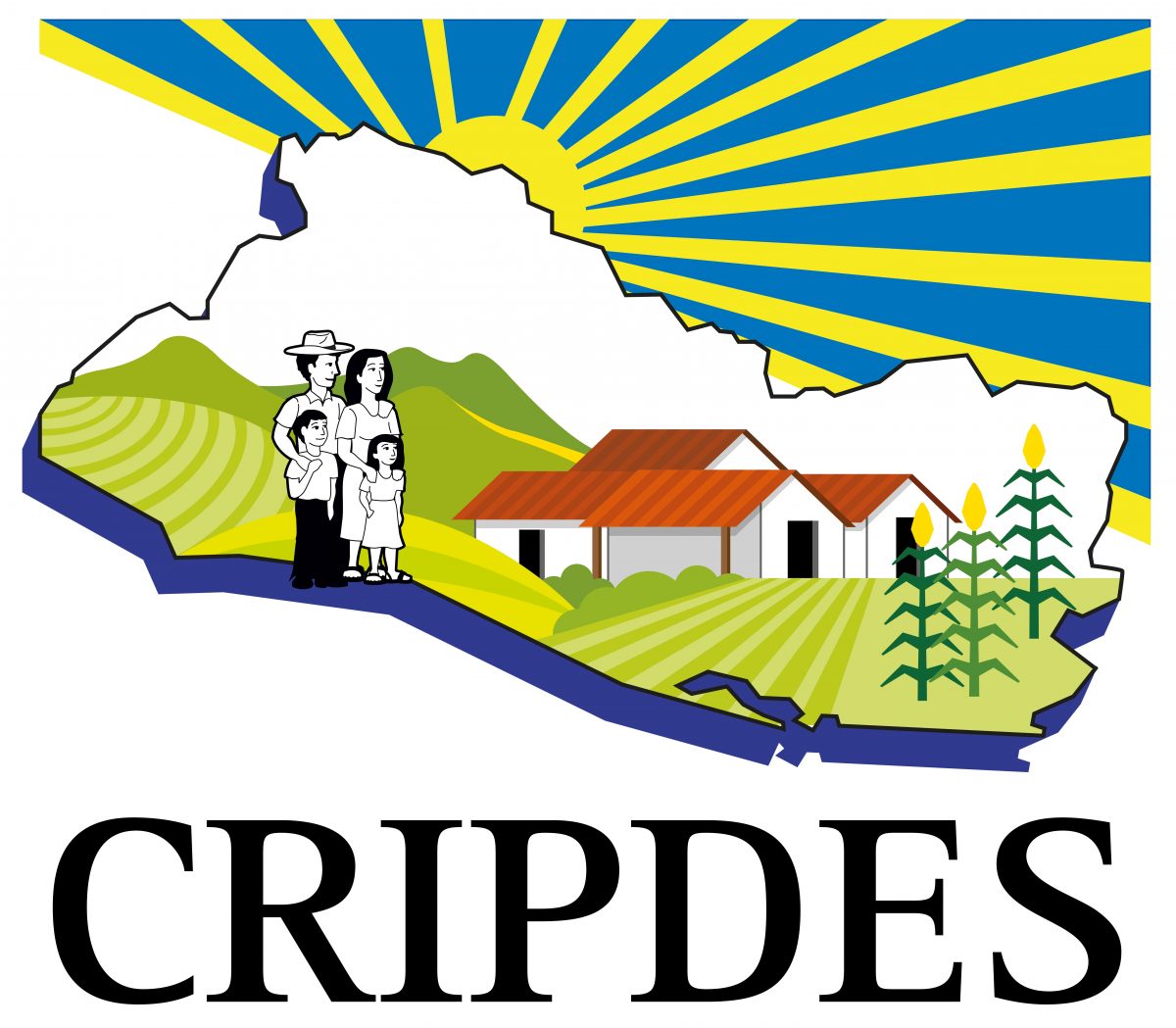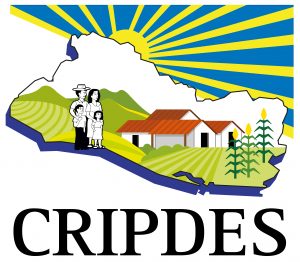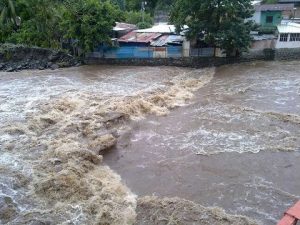CRIPDES Regional Support
Regional Update: CRIPDES Sur – May 7, 2007
May 7, 2007
CRIPDES Sur Monthly Update #2
Introduction:
This document is the first in a series of monthly updates on the work of the CRIPDES Sur, the regional branch of CRIPDES in La Libertad, and documenting the social, political, economic and cultural panorama in the work in the region. CRIPDES Sur, with support from U.S.-El Salvador Sister Cities local staff, has decided to share in this format news about its activities as well as reflections, reactions and analysis. These updates are written first and foremost to share with Sister Cities in the USA who are partenered with organized communities in La Libertad, but should also be suitable for general distribution. Information was presented to me in an informal and open style, a barrage of activities and alliances that were persistently and patiently mapped out over the course of 90 minutes of talking and furious note-taking. It was such an energizing and invigorating break from the formality that often obscures the exciting nature of all the good work going on the author has decided to present the information below in much that same format.
– Jesse Kates-Chinoy,
Sister Cities E.S. Staff
Community Organizing
CRIPDES Sur continues to accompany the communities of the Southern part of the La Libertad province in their collective processes of community organizing. In the past couple of months the CRIPDES Sur organizers have been helping to put together Directive Councils in the communities where they have not been legally established.
As well, CRIPDES Sur has been promoting the union of the individual community organizing structures in Municipal Coordinators. These Municipal structures are established to coordinate the organizing and production initiatives together and throughout the municipality. They work closely with CRIPDES Sur and CORDES to integrate the agricultural and small business work with the ongoing community organizing efforts. So far they have had success, pulling together 80-100 producers and community members in each municipality, and they are starting to put together strategies to create local markets, and mobilize the communities.
Another area where the organizing efforts of CRIPDES Sur are growing on a steep curve is in the municipality of Teotepeque. This is a relatively new municipality to CRIPDES Sur work, an historic area (Farabundo Martí was born there) but now with a right wing local government (ARENA) and communities are poorly organized, or not at all. CRIPDES Sur organizer Benedicto Torres is from Teotepeque, and has been assigned to work there. He has made some headway, helping to form youth groups, womens groups, and create Community Councils, legalized into Community Development Associations, ADESCOs. The legalization of these community structures has been an uphill battle. Given the political tendency of the local government of Teotepeque the local authorities hem and haw and do everything they can to avoid recognizing the legality of the organized communities. But does CRIPDES Sur despair? No! The municipalities of Tamanique and Chiltiupan, where CRIPDES has worked for some time now, are also governed by the ARENA party, but through persistent organizing and pressure the local officials have had to recognize, and even work together with the CRIPDES communities. Benedicto assures that CRIPDES progress in Teotepeque is slow and an uphill battle, but progress nonetheless.
One other area of growth in community organizing for CRIPDES Sur in the past couple of months has been a defined and strategic coordination with the FMLN party. CRIPDES Sur respects and promotes the identity of the organized communities as part of a social movement not connected to any political party. Simultaneously, however, they recognize that the communities are anxious and thirsty for political change, and that the accumulation of the force of the organized communities through CRIPDES is an important and necessary tool for that change. Given this, CRIPDES Sur has been coordinating with the FMLN, not as part of a political campaign, rather to ensure the participation of the organized communities in the political process. CRIPDES Sur coordinator, Jesus Orantes said that: “the [FMLN] party is looking to promote and benefit from widespread social consciousness, and we know that this consciousness can only be created by a social movement, not a political party…” With that logic CRIPDES Sur has been working hand in hand with the FMLN to strengthen the Salvadoran social movement, especially looking toward the 2009 local, provincial and presidential elections.
Education and Trainings
One of the main activities of CRIPDES Sur is the promotion of popular education and training to strengthen community organizing. In this area two CRIPDES Sur directive council members, Benedicto Torres and Zulma Hernandez, have been participating in a School for Social “Dynamizers” (ed. Note: there must be a real word for that… I wonder what it is). In this 9 month process participants receive materials and trainings on human rights, strategies for non-violent resistance, and conflict resolution.
Scholarship Program
The CRIPDES Sur is in full swing as the academic year continues. The funds for the scholarships have been effectively paid out monthly, as the students turn in their monthly reports on community participation and grade reports. Scholarship Program Coordinator Omar Barahona has let us know that there will be a full program progress report forthcoming in the next few days.
At the same time, Omar has been coordinating another important and complementary aspect of the program: popular education trainings with the scholarship students. The most recent training was on the “El Salvador Superstructure”, the implementation of the neo-liberal model in El Salvador that has changed the economic system from an agricultural-exportation model to a human exportation model that turns Salvadorans into culture consumers. At the last scholarship assembly the students discussed this system, and how it affects young people in El Salvador, and specifically how it compares to the lessons they receive in their social studies classes in school.
El Charcón Conflict Resolution Project
The El Charcón Conflict Resolution Process is moving slowly but surely. The objective of the project is for the community to obtain skills, tools and knowledge to resolve conflicts within the community through group work and process to generate, transmit and orient the learning of others. They will through this process create a community development plan, develop methods for joint evaluations of community work, and hopefully strengthen community unity.
The project methodology and plans have been defined, and Sonia Menjivar has been named the facilitator of the project workshops. Sonia is the co-leader of the Participation and Local Power (PPL) coordinator of CRIPDES Sur and CORDES. The workshops will be held around:
Basic concepts of what is a conflict and what generates it
Communication and Awareness
Leadership
Organizational environment and change
Tool Box
Analysis of the results of organization, causes
Global diagnosis of community organization
Conversion of diagnostic studies into action plans
Chilama Agriculture and Community Work Project
The Chilama Agriculture project is about to enter into its second phase: planting season. The project began with the community coming together to work on a common project: fixing and building the road that leads into the community. The community put together work groups where most all of the families from Chilama spent two days per week for several weeks hauling rocks, water, and sand from the river several hundred meters up the steep hill to fill in ditches the size of small cars. The community was able to talk the Mayor’s Office into donating some bags of cement and loaning them heavy machinery for a day, but apart from that all of the progress on the road has been directly from the sweat of the community, and it is considerable. From the top of the road for several hundred meters they have laid cobblestones, and made drainage tubes and ways over and around the streams that cut across the road, and completely wash it away in the rainy season.
Now, as the rainy season approaches the community switches tasks, to preparing the land and buying agricultural input. The project stipulated that every family who worked on the road would have access to material support for the planting season. It turns out that this means 100% of the families of the community, 44 in all. They have decided to use the available money to buy for each family one sack of fertilizer, as it is the most expensive material they need to grow corn and beans for the year. They have enough money in the project for 43 sacks of fertilizer, so the community decided that each family would chip in 1 dollar to buy the last sack of fertilizer for the remaining family. Now they are negotiating the purchase, with the help of CRIPDES Sur and CORDES technical staff, and preparing the land, as the rains are beginning.
Sistering Relationships
Omar has been accompanying the sistered communities in the region (Chilama and El Charcón) in their participation in the U.S.-El Salvador Sister Cities Strategic Planning Process. Each community has held a general assembly to discuss the questions, together with CRIPDES Sur organizers and Sister Cities staff.
Political Advocacy and Mobilization
CRIPDES Sur has been coordinating closely with the Popular Resistance Movement October 12, MPR-12. In this space, as part of a strong national social movement they participate in the creation of a collective analysis of the current reality of the country from the social, political and economic perspective, as well as the projection of actions and mobilizations. One of the activities of the social movement has been the organization of a large march on May 1, to celebrate international worker’s day. CRIPDES Sur was able to mobilize 6 busloads of people to participate in the massive march in San Salvador, along with students groups, the agricultural cooperative sector, health workers, pirated cd-dvd vendors, and others. According to CRIPDES Sur coordinator Jesus Orantes, close to 100,000 people participated in the march, as when the leaders of the march had arrived in the central square where the march was to end, it still took another 40 minutes for the end of the march to leave the starting point all the way across the city.



